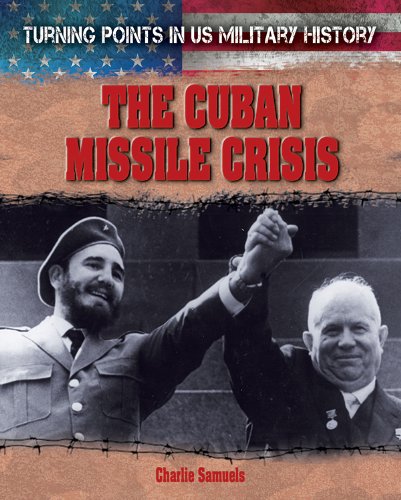

The Cuban Missile Crisis: A Turning Point in the Cold War
The Cuban Missile Crisis, which occurred in October 1962, was a critical moment in the Cold War between the United States and the Soviet Union. It marked a turning point in the conflict and had far-reaching implications for international relations.
During the crisis, the Soviet Union secretly placed nuclear missiles in Cuba, just 90 miles off the coast of the United States. This move was seen as a direct threat to American national security and sparked a tense standoff between the two superpowers.
The crisis reached its peak when U.S. reconnaissance aircraft discovered the missile sites in Cuba. President John F. Kennedy addressed the nation in a televised speech, revealing the presence of the missiles and demanding their immediate removal. The world held its breath as the two nations stood on the brink of nuclear war.
However, through intense diplomatic negotiations, Kennedy and Soviet Premier Nikita Khrushchev were able to find a peaceful resolution. The United States agreed not to invade Cuba, and in exchange, the Soviet Union removed its missiles from the island. The crisis was averted, but its impact was profound.
Firstly, the Cuban Missile Crisis highlighted the dangers of nuclear weapons and the potential consequences of their use. It served as a wake-up call for both the United States and the Soviet Union, leading to a renewed commitment to arms control and nuclear disarmament.
Secondly, the crisis brought the world closer to nuclear war than ever before. The realization that a single miscalculation or miscommunication could lead to catastrophic consequences led to a shift in the Cold War dynamics. Both sides became more cautious and sought to avoid direct military confrontation.
Furthermore, the crisis had significant implications for U.S.-Soviet relations. Despite the tension and brinkmanship, Kennedy and Khrushchev recognized the need for dialogue and established a direct hotline between Washington and Moscow to improve communication and prevent future misunderstandings.
In conclusion, the Cuban Missile Crisis was a pivotal moment in the Cold War. It highlighted the dangers of nuclear weapons, led to a renewed commitment to arms control, and brought the United States and the Soviet Union closer to the brink of nuclear war than ever before. Its impact on international relations and the subsequent efforts to prevent future crises cannot be overstated.
Related Posts
© 2024 Invastor. All Rights Reserved

User Comments
User Comments
There are no comments yet. Be the first to comment!